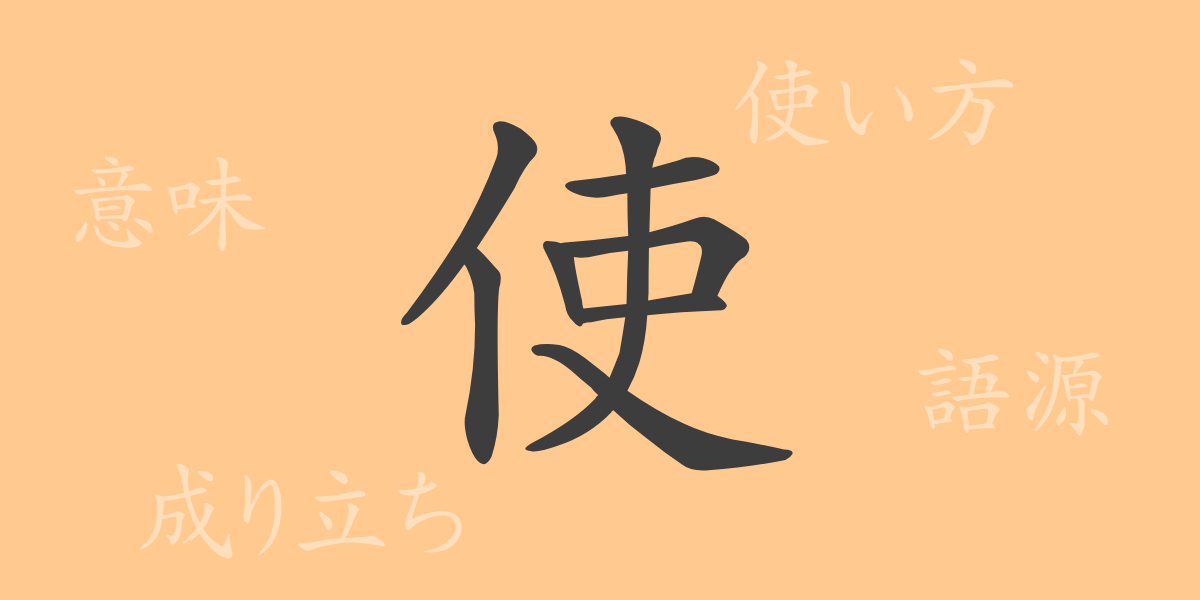The commonly used kanji “使(つか)う” is deeply rooted in Japanese culture and is frequently used in everyday life. Let’s embark on a journey to explore the rich meanings and history of this single character. From emissaries with missions to the tools used in daily life, the world of “使(つか)う” is vast. In this article, we will unravel the origins, readings, meanings, and compound words of “使(つか)う.”
Origins of 使(つか)う
The origins of the kanji “使(つか)う” can be traced back to ancient China. The original form can be seen in oracle bone script, combining the elements “吏(り)” and “吾(ご).” This combination came to signify a person acting towards others for a certain purpose. Over time, the concepts of emissaries and missions became associated with this kanji.
Meaning and Usage of 使(つか)う
The kanji “使(つか)う” primarily indicates the action “to use.” It is also used in words like “使者(ししゃ)” (emissary) and “使用(しよう)” (usage), referring to people or things being moved or used for a certain purpose. In Japanese, it is widely used as a verb, noun, and suffix, with its meaning subtly changing depending on the context.
Readings, Stroke Count, and Radical of 使(つか)う
Let’s take a closer look at the structure and composition of the kanji “使(つか)う.”
- Readings: The on’yomi (音読み) reading is “シ,” and the kun’yomi (訓読み) readings are “つか(う)” and “つか(い).”
- Stroke count: “使(つか)う” has 8 strokes.
- Radical: The radical is “人(ひと・にんべん),” which signifies actions or states related to people.
Idioms, Phrases, and Proverbs Using 使(つか)う
What idioms, phrases, and proverbs include “使(つか)う”?
- 使者(ししゃ): A person sent with a specific purpose.
- 使用人(しようにん): A person employed for work.
- 代使(だいし): A person who does something on behalf of someone else.
- 使い捨て(つかいすて): Disposable items, used once and then discarded.
- 使い道(つかいみち): Ways or purposes of using something.
These idioms and phrases reflect the basic meanings of “to use” or “to dispatch” inherent in “使(つか)う.”
Conclusion on 使(つか)う
The kanji “使(つか)う” holds numerous meanings beyond its simple form and plays a vital role in the Japanese language. From emissaries carrying missions to everyday tools, “使(つか)う” is vibrantly alive in our words. We hope this article has helped you appreciate the depth of the kanji “使(つか)う.”

























